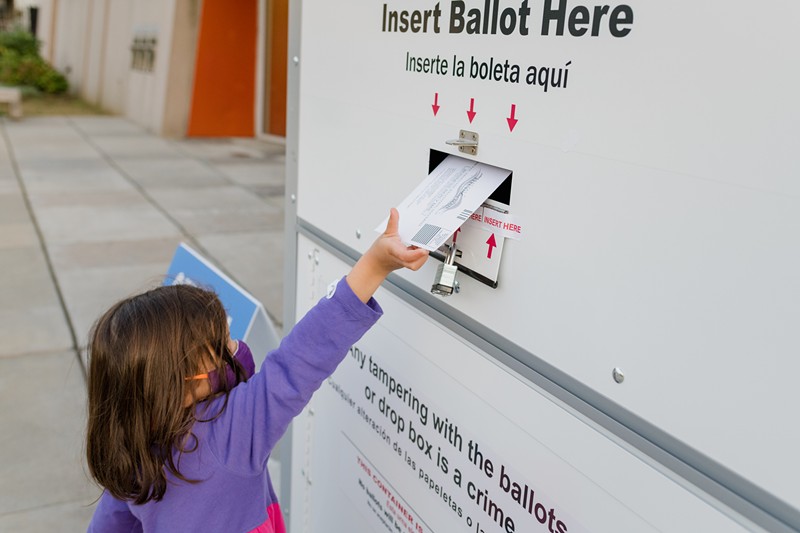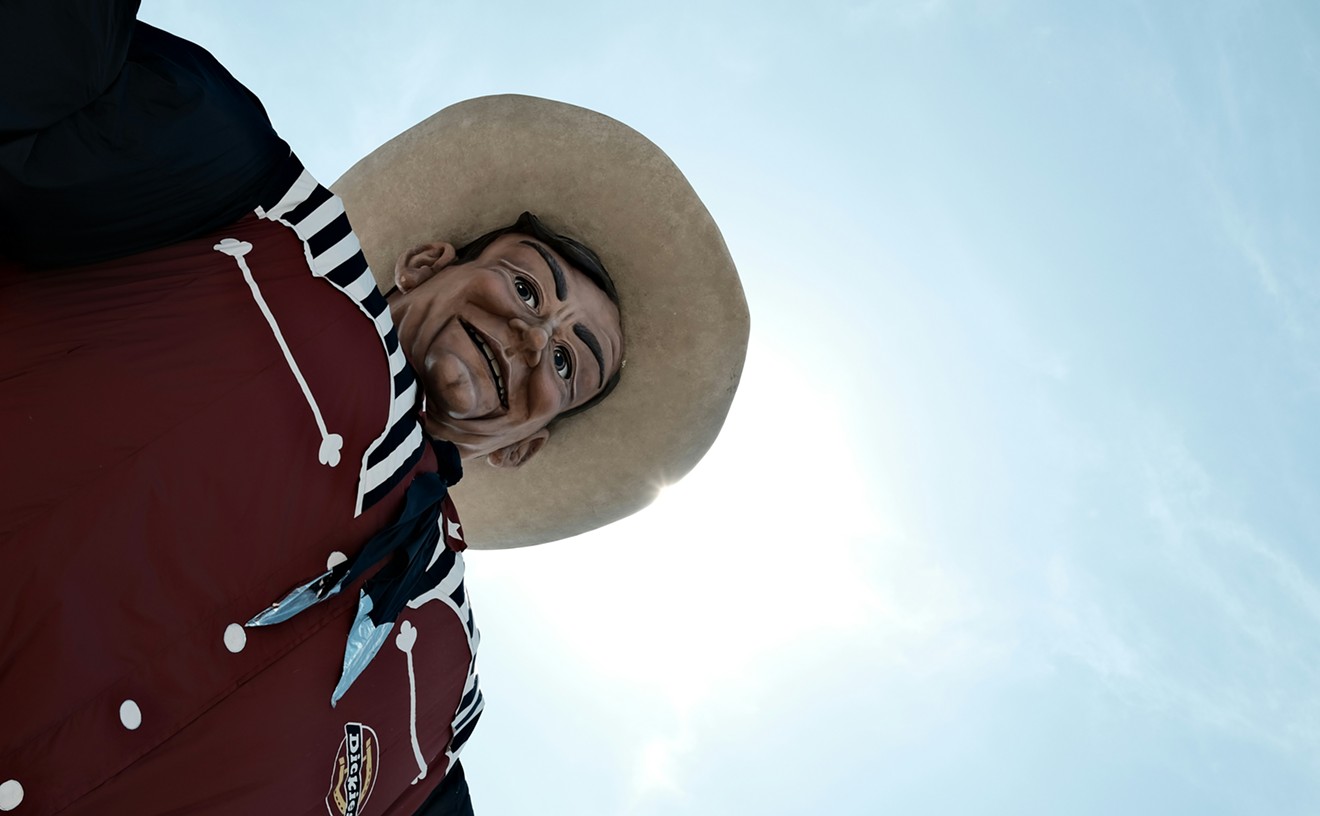U.S. District Judge Xavier Rodriguez, who serves in the Western District in San Antonio, immediately halted the state’s efforts to investigate vote harvesting under the 2021 law, which he ruled would stifle speech and suppress efforts by legitimate advocacy groups and nonpartisan organizations to encourage voting.
Those who fear that illegal vote harvesters will soon be flooding the upcoming election with illegitimate ballots thanks to a meddling judge can rest easy, though. The unsavory practice of “vote harvesting,” essentially paid political hacks defrauding old people of their mail-in ballots, is already against the law in Texas. What S.B. 1 tarred as “vote harvesting” was, in fact, things like assisting voters to obtain ballots, helping non-English speakers fill out forms and running get-out-the-vote programs, all of which fall under the heading “legitimate political activity,” at least in other parts of the country.
S.B. 1, which also banned drive-thru and 24-hour voting, tightened rules for mail-in ballots and granted partisan poll watchers greater freedom of movement inside polling places, is the target of multiple other challenges still pending before Rodriguez.
Opposition to the law, which critics say is aimed at suppressing likely Democratic voters, was so fierce in 2021 that Texas House Democrats walked out of the Legislature and headed off to Washington, D.C., to deny the House a quorum in an effort to block its passage. It took two special sessions of the Legislature for GOP lawmakers to pass the bill.
The section blocked by Rodriguez’s ruling, issued Saturday, threatened third-degree felony charges against anyone who “harvested” votes in exchange for compensation, anyone paying for vote harvesting services and anyone who collects or possesses a mail ballot or official carrier envelope in connection with a vote harvesting service.
"Plaintiffs and their members fear that they risk criminal sanction for assisting or speaking with voters, which has ... chilled their speech ..." — U.S. District Judge Xavier Rodriguez
tweet this
Rodriguez ruled that the law was unconstitutionally vague about what is compensation — Does a free lunch for a canvasser count? A bus pass?
And even talking with a voter about an election while being too close to a mail-in ballot could conceivably have been a crime. According to S.B. 1’s text, the ban on paid vote harvesters applied to anyone having “in-person interaction with one or more voters, in the physical presence of an official ballot, a ballot voted by mail, or an application for ballot by mail, intended to deliver votes for a specific candidate or measure.”
How close could a vote canvasser, full-up on snacks at a get-out-the-vote event, get to an absentee ballot before running the risk of a stretch in prison? The law was unclear, and that’s a problem for a group like OCA-Greater Houston, one of the plaintiffs in the case. It’s a membership-driven organization advocating on behalf of Americans of Asian and Pacific Islands descent largely in Harris, Brazoria and Fort Bend counties that holds events where volunteers assist non-English speakers and new voters to understand and complete voting applications and mail-in ballots.
You know, democracy in action.
“Nothing in the trial record suggests that Plaintiffs’ or their members seek to defraud or intimidate voters. Thus, as applied to Plaintiffs’ voter outreach activities, the Canvassing Restriction violates Plaintiffs’ First Amendment freedoms by criminalizing interactions meant to foster engagement and turnout in the communities they serve,” Rodriguez wrote. “The Canvassing Restriction has created an environment in which Plaintiffs and their members fear that they risk criminal sanction for assisting or speaking with voters, which has both chilled their speech and impaired their ability to recruit new members and volunteers and provide voter assistance.”
The fact that the S.B. 1 swept up legitimate political activities and lumped them under the disreputable term “vote harvesting” shouldn’t be surprising in state where the GOP has been energetically trying to gin up fear that voter fraud is a massive problem, despite evidence to the contrary. Consider the case of Crystal Mason, a Tarrant County woman on supervised release for a federal tax evasion case. She didn’t know whether she was allowed to vote — she wasn’t — so she cast a provisional ballot in 2016, one that wasn’t even counted. Nevertheless, Tarrant County charged her with illegal voting. She was convicted and sentenced to five years in prison, but the Second Court of Appeals overturned her conviction earlier this year.
Nevertheless, S.B. 1’s overreaching doesn’t mean that unlawful vote harvesting hasn’t happened in Texas. In 2002, Dallas Observer columnist Jim Schutze wrote a number of stories about the skeevier kind of harvesting in Dallas elections. Paid political operatives — ballot brokers — would obtain from election offices daily lists of addresses of people who had been issued mail-in ballots and time their arrival at voters’ doors to match when the ballots arrived. They would then “help” the voters fill in the ballots and offer to see they were delivered. In low-turnout local elections, a box full of absentee ballots could alter an election, provided someone paid to have it delivered.
“[A] political insider says some brokers are paid by the ballot — at $5 or $7.50 a pop. The expense is carried on campaign finance reports as fees to political consultants,” Schutze reported 22 years ago. “Some people, [political consultant Tony] Garrett says, have made a career of the practice. ‘I know of one couple who made more than $15,000 during the last election cycle doing this sort of thing,’” he told Schutze.
In 2003, the Legislature amended election laws to end the practice. Information about who applied for mail-in ballots was not made public until the ballots were returned, and people assisting voters were required to sign the ballots and provide their addresses on envelopes. Only legitimate carriers were allowed to deliver ballots to election offices, and storing up reams of filled-in ballots was outlawed.
Which would seem adequate, if the goal of a law is to discourage vote harvesting without suppressing legitimate political activity. But then, that was never really the point of S.B. 1.
In addition to OCA-Greater Houston, plaintiffs in the case were the League of Women Voters of Texas; the League of United Latin American Citizens; the Texas AFT teachers’ union; La Union Del Pueblo Entero, an advocacy organization assisting people in colonias; and the Mexican American Bar Association of Texas. They sued the governor, the Texas attorney general and several county district attorneys.













